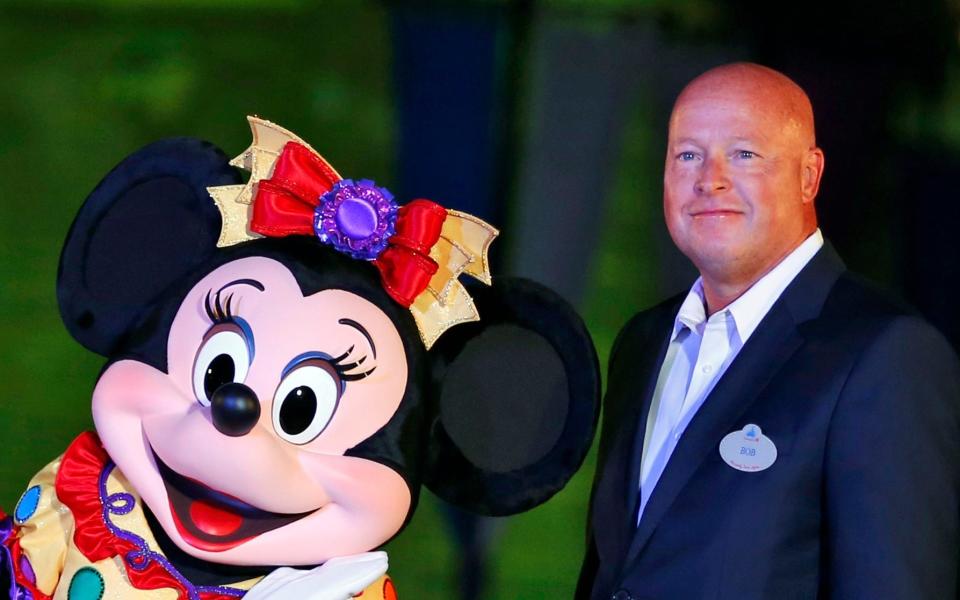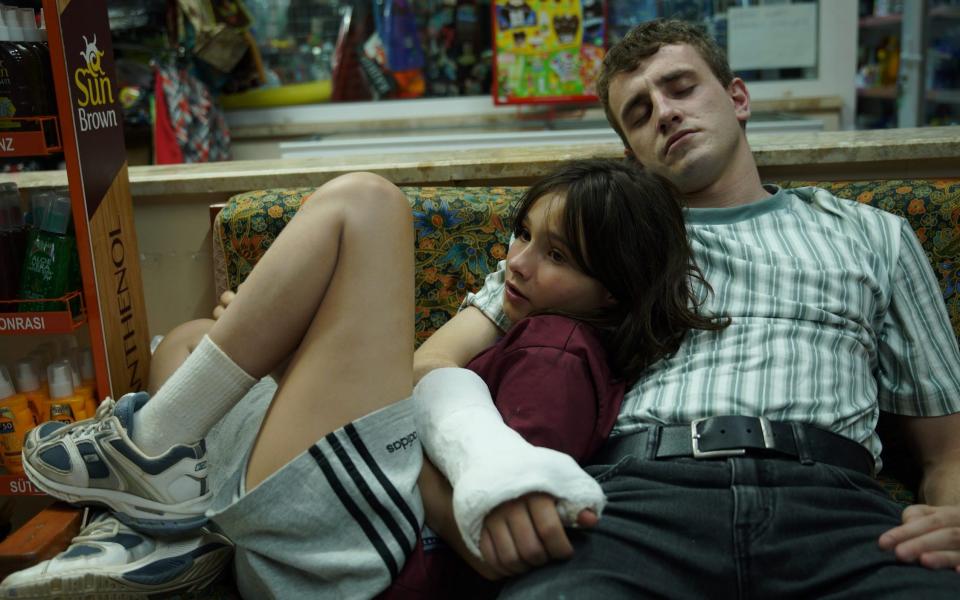Was 2022 the year that Tom Cruise single-handedly saved cinema?

Surely only Tom Cruise – movie star, aerobatic pilot, Operating Thetan Level 8 in the Church of Scientology – has the ego to believe he could single-handedly save cinema. And perhaps only Tom Cruise could have actually done it.
Though the final figures are still filtering through, industry analysts are confident that more than £1 billion has been spent at the UK box office in 2022, meaning ticket sales have just about returned to pre-pandemic levels. And the biggest draw by far was Cruise himself, whose Top Gun: Maverick took £83.5 million in this country – about twice as much as the next most successful film, Minions: The Rise of Gru – and an extraordinary $1.48 billion worldwide. At the time of writing, 13 films that opened this year have taken more than £20 million, with Matilda the Musical and next week’s Avatar sequel both guaranteed to join the list. (In 2019, the number was 19.)
The list skews heavily towards escapism: franchises such as Marvel and Jurassic World, as well as CG cartoons. Horror also thrived in 2022, as did the (very different) emotional thrill-rides of Everything Everywhere All at Once and Where the Crawdads Sing: as a country we were hungry for collective sensation, and understandably so.
But with so much entertainment now streamable from our sofas, anything too televisual often failed to ignite. And not just obvious cases either, such as the (rather decent) Downton Abbey sequel, which drew less than half of the 2019 original’s audience. Disney’s two big animated features, Lightyear and Strange World, both bombed, after the studio trained its core customers over the past two years to expect that sort of thing on TV, gratis, as part of its Disney+ packages.
Meanwhile, Netflix played its tremendous all-star comic whodunit Glass Onion in around 100 UK cinemas for one week only, as an amuse-bouche for its arrival on their service later this month. The company doesn’t report its box-office takings, but Rian Johnson’s film is believed to have made almost £2m in that time alone (and $15m in the US) – a healthy dent in its $45m budget. Is it heading towards a theatrical rollout that covers production and distribution costs, followed by a brief period of unavailability, then a second release on home entertainment platforms? That business model sounds strangely familiar…

But where were the old-school studios’ own Glass Onions – standalone films that combined glamour, fun and ingenuity? Conspicuous by their absence, for the most part, though at least we got The Menu, Don’t Worry Darling and Nope. Instead, out poured one of the worst blockbuster vintages in living memory: Jurassic World Dominion, Bullet Train, Fantastic Beasts: the Secrets of Dumbledore, Marvel’s Doctor Strange and Black Panther sequels, and various other sprawling, charmless, Covid-jumbled wrecks. Many of 2022’s worst films were also among its most successful: in America especially, brand familiarity was everything.
But the American market’s failure to venture back out to original, mid- and upmarket releases was thankfully not mirrored here. Baz Luhrmann’s glittering musical biopic Elvis took £27m in the UK: once you factor in the sizes of the respective markets, that makes it twice as successful here as it was in the US. By the same metric, Ruben Ostlund’s Cannes-winning satire Triangle of Sadness was three times as popular over here, and Martin McDonagh’s The Banshees of Inisherin 10 times – and still extending its lead. Whatever the latest list of Covid symptoms, Britain never lost its sense of taste.
Friends at the boutique cinema chains have told me that the days when patrons would only decide what to see once they had arrived in the foyer have yet to return. Could the coming Oscar and Bafta season bring them back? The list includes Todd Field’s raucously entertaining Tár, with Cate Blanchett as an exalted conductor on the brink of cancellation; Damien Chazelle’s Babylon, a madcap epic of silent-era Hollywood debauchery; Steven Spielberg’s note-perfect memoir The Fabelmans; and Darren Aronofsky’s soul-scouring The Whale, in which Brendan Fraser makes his long-awaited comeback.
Unlike the last two awards seasons, the 2023 crop also feels rousing: these are films you want to hurry out and experience, rather than just catch up with whenever they turn up on streaming, where the two previous Best Picture winners, Nomadland and Coda, were both soon to be found.
Perhaps that same quality is the cause of Top Gun: Maverick’s success. Intentionally or otherwise, the slew of Marvel and Star Wars series on Disney+ has surely trained their followers to think of the CG-heavy franchises as content to be absorbed at their own convenience: from cinema or sofa, it makes no odds. But when Tom Cruise climbs into the cockpit of an F-35C fighter jet and invitingly pats the copilot seat, who could possibly respond with a “Thanks, but I’ll see you in the living room in three months.”
That’s not to say that superhero films are failing to fly. After Cruise and the Minions, the genre filled out the year’s box office top five: Marvel had their insipid Doctor Strange sequel and Thor: Love and Thunder (which made me laugh, at least), while DC had Matt Reeves’s The Batman – which, with its 15 rating and three-hour running time, was as uncommercial as major comic-book films get.
Yet as successful as those three films were, they were each barely half as popular as Top Gun: Maverick, which suggests the mainstream audience Hollywood envisions for itself is rather narrower than the one that’s actually out there, impatient to be entertained.
What did Cruise, his director Joseph Kosinski and their colleagues bring to the table? Incredible spectacle and daring that you have to see to believe (and perhaps struggle to believe even then). But also true movie-star performances, of the old-fashioned, sigh-slash-swoon-inducing kind – not just from Cruise, but also Jennifer Connelly, Miles Teller and Glen Powell.
Their film was also actually about something – what age takes from us, and what it gives us. And it was beautiful, too. Not showy, or extravagant, or choked in the sandstorm-of-pixels style of digital effects that’s almost everywhere else right now. But elegantly and thrillingly photographed, with the unshakeable faith in the power of faces and landscapes that almost all great cinema shares. For those reasons, it’s the Telegraph’s film of the year – and, I would hope, a strong Best Picture contender.

Meanwhile, over at the suddenly troubled-looking Disney, the studio which had previously engaged so enthusiastically in socio-political football suddenly found itself being booted up and down the pitch. Of a number of crises that sprung up around its recently departed CEO Bob Chapek, perhaps the signature one involved the so-called “Don’t Say Gay” law introduced in Florida – home of many of the company’s parks – which prohibits discussion of sexual orientation and gender identity in primary schools.
In February, Chapek came under pressure to formally condemn the bill – but he declined, prompting walkouts from his overwhelmingly progressive workforce. By the end of March came a catastrophic reverse ferret: a statement from Chapek that said that Disney would actively work to get the law repealed, causing an outcry among Republicans, which led to the company losing its special tax privileges in the state. This was Hollywood’s clumsiest foray into politics in quite some time, and gave both opposing teams, woke and reactionary, ample cause to comb Disney’s output for shadowy agendas. With a Republican presidency impending, the studios will have to get smarter at this.
While they’re at it, they might reconsider their current policy of crawling to the Chinese regime in pursuit of access to that country’s lucrative theatrical market. Or should that be formerly lucrative? While China’s cinemas raked in $7.3bn in 2021, this year’s total was only a little over half that sum: a consequence of both Beijing’s ravening appetite for lockdowns and the regime’s increasingly severe and opaque censorship of western titles. (The new Avatar and Minions both passed muster, but none of the seven most recent Marvel films, reportedly for reasons as petty as there being too many shots of the Statue of Liberty in Spider-Man: No Way Home.) So as you peruse the listings over Christmas, spare a thought for that country’s cinephiles. The latest anti-lockdown protest slogan to catch on in Shanghai? “I wanna see a movie!”

At home, things were less fraught – even the UK arm of the Cineworld multiplex chain has kept soldiering on after its US counterpart filed for bankruptcy in September. There was a shock, though, when in October two of Scotland’s most beloved and venerable cinemas closed abruptly: the Filmhouse in Edinburgh and the Belmont in Aberdeen; 102 employees lost their jobs with immediate effect. Places like these aren’t just where film lovers are created, but where our most gifted new filmmakers stand the best chance of finding their crowd. Take Aftersun, the (deservedly) feted debut from 35-year-old Charlotte Wells. It’s hard to believe this tender, delicate father-daughter portrait would have accrued anything like the same buzz if it had just turned up online.
At last week’s British Independent Film Awards, Aftersun took Best Film. Close behind with four awards was another debut: the tremendous Blue Jean, from 34-year-old Georgia Oakley, which opens in the UK early next year. Place those alongside recent debuts by young, British and, interestingly, mostly female directors – Rose Glass, Claire Oakley and so on – and one gets the sense of a gathering wave.
In the real world, such waves have to be sloshed along a bit – from audiences, public bodies, and the charities and companies whose stewardship of our cinemas, wise or otherwise, impacts so much more than their own balance sheets. But there’s a possible future out there that’s so bright, we’ll all need a pair of Maverick’s Ray-Bans.

 money
money 